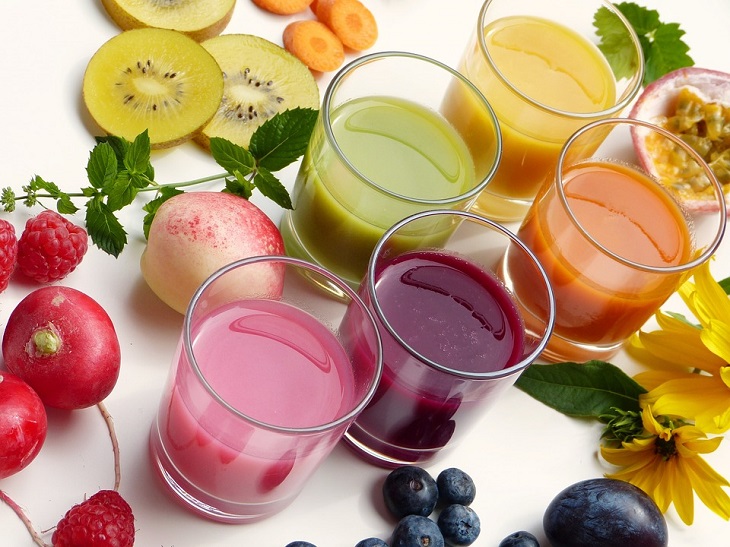Are juices that promise “cleansing from toxins” or “detoxification” of our bodies considered healthy? Are these products worth it?
Most likely not. If your body has been poisoned, detox juices and herbal products are not likely to help. The toxins they refer to are usually not real poisons like heavy metals or pesticides. They use the word toxin to grab your attention so you think there is something wrong and that buying their product will correct it. It is normal for our bodies produce some of these substances that should not be stored. Fortunately, our kidneys and liver are designed to rid the body of these substances.
Another concern with juice detox products is the sugar content, which may be as high as the content of a regular soft drink. Some might be good sources of potassium and vitamin C, but can leave you feeling hungry later. This could lead to overeating and frustration surrounding your health goals. As an alternative, whole fruits have the same vitamins and minerals as juice, take longer to eat, and have fiber that’s lacking in juice to help you feel more satisfied.
We can’t talk about cleansing without mentioning the many colon cleanse products that are available. These products claim to remove “toxins” from your colon; however, most foods are absorbed in the small intestine, not the colon. It is important to note that many colon cleanse products contain some otherwise healthy ingredients like probiotics (often called “good bacteria,”), prebiotics (things that help probiotics grow, often called “resistant starch”) and fiber, but there are many foods that contain these same ingredients.
Certain probiotics might also help people with constipation have more regular bowel movements; however, adding probiotics too quickly can also cause the opposite problem—diarrhea. Start with small amounts of probiotic foods (such as low-sugar yogurt with active cultures and sauerkraut with live cultures) and increase serving sizes slowly.
The best sources of prebiotics and fiber are fruits, vegetables, whole grains, and legumes. Getting the right amount of prebiotics and fiber in your diet might help you absorb a few less calories, feel fuller and allow you to eat less overall. To increase prebiotics and fiber in your diet, start with a couple small portions of these foods and increase the amount slowly so you don’t end up feeling bloated or uncomfortable. Also make sure to drink enough water!
For more information on strategies to make healthy changes to your diet, contact your local VA registered dietitian.

Topics in this story
More Stories
Nutrition plays an important role in our overall health. Telehealth resources can help you set and achieve your healthy eating goals.
Embrace simplicity and balance during the holiday frenzy! Discover the beauty of self-care and a nourishing meal in this week's #LiveWholeHealth practice.
Grain salads pack a punch of vitamins, minerals and fiber. Check out this colorful, flavorful recipe in this week's #LiveWholeHealth video recipe.





